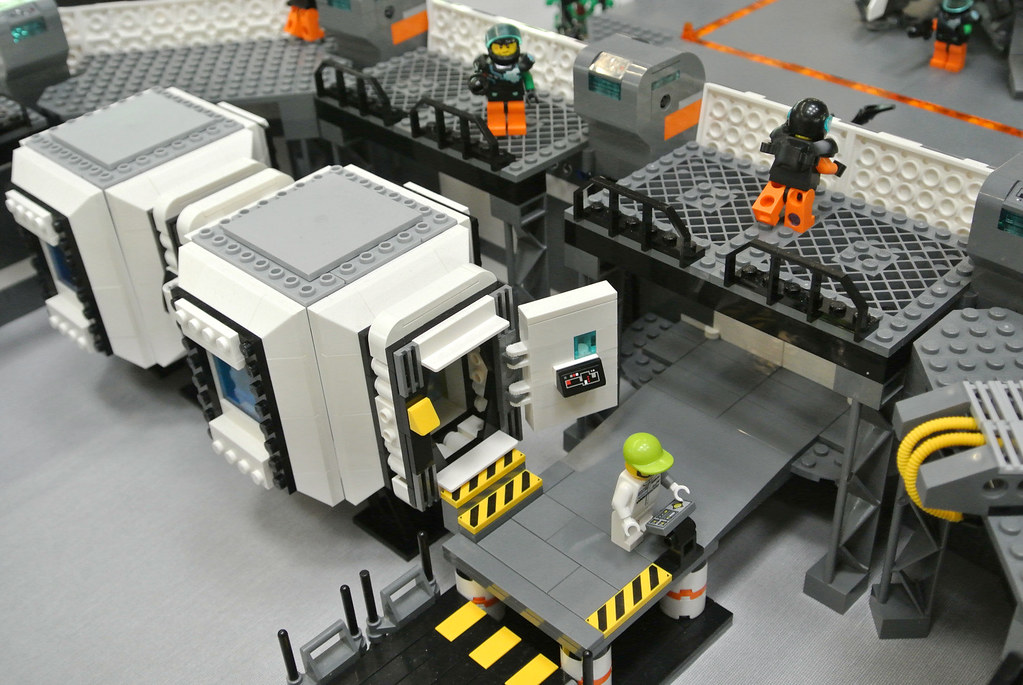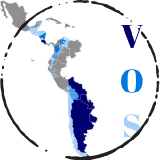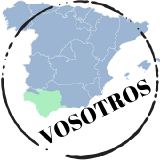4.9: Sección 2 - El futuro simple
- Page ID
- 113312
 ¿Cómo será una colonia lunar?
¿Cómo será una colonia lunar?
- La luna volverá a dar cobijo a los humanos
- Una estación que irá creciendo "pasito a pasito" hasta crear un pueblo lunar.
- La nueva aventura lunar será una etapa imprescindible para apuntar al próximo destino, Marte.
- Antes de pensar en él [ir a Marte] habrá que tener "sistemas fiables "
- Los primeros humanos que lleguen a Marte lo harán de una forma muy diferente
- Robots crearán una base en nuestro satélite.
- La gente viajará a Marte
[Puedes leer todo el artículo prestando atención en la sección "Un pueblo lunar".]
"TERRA PRIME (Chapter X)" by The Brickstons Group CC BY-NC-SA 2.0
The future tense
All the verbs in boldface are in the future tense or el futuro simple. You've already been expressing yourself in the future by using [ir + a + infinitive], but this is another way of talking about events in the future.
Uses of the future
The future can express:
- An action in the future
- Los humanos volverán a la luna
- Los robots nos ayudarán
- To express what might happen (often expressed as a question or translated as "I wonder")
- ¿Viajaremos a Marte dentro de diez años?
- ¿Será normal vivir unos meses en la luna?
- ¿Podrá viajar a la luna en unas horas en vez de días?
-
- Predictions
- Se dice que habrá gente interesada en colonizar la luna.
- To express something that is very likely to happen under certain circumstances
- Si hay más inversión financiera, podremos tener las primeras colonias lunares en cinco años.
- Si la tecnología avanza bastante, tomaremos cohetes a Marte.
Conjugating verbs in the future
The future is easy to conjugate since you only have to learn one set of endings since they attach to the infinitive.
Future endings
| yo: -é | nosotrxs: -emos |
|
tú: -as |
|
| Ud, él, ella: -á | Ustedes, ellxs: -án |
| *For more information on the regional forms "vos" and "vosotros", click the images above | |
Verbos regulares
| Pronombre de sujeto | Terminación | Verbo | Ejemplo |
| yo | -e | descargar | Descargaré el programa |
| tú | -ás | archivar | Archivarás el documento para no perder todo tu trabajo |
| Ud, él, ella | -á | difundir | El virus se difundirá por la computadora sin un antivirus instalado |
| nosotrxs | -emos | moverse | Nos moveremos para que puedas sentarte. |
| Uds, ellxs | -án | encender | Si ustedes quieren ver mejor, encenderán las luces. |
Verbos irregulares
Of course, there are a handful of irregular verbs in the future. The simple future endings will remain the same, it is the root that will show the irregularity.
Here is a group of -er verbs that will omit the "e" from the infinitive, and the future endings will then attach.
Grupo A: -e of the infinitive>ø
| Pronombre de sujeto | caber>cabr | haber>habr | poder>podr | querer>querr | saber>sabr |
| yo | cabré | habré | podré | querré | sabré |
| tú | cabrás | habrás | podrás | querrás | sabrás |
| Ud, él, ella | cabrá | habrá | podrá | querrá | sabrá |
| nosotrxs | cabremos | habremos | podremos | querremos | sabremos |
| Uds, ellxs | cabrán | habrán | podrán | querrán | sabrán |
Grupo B: e/i >ø; insert a "d" before the "r" of the infinitive ending
| Pronombre de sujeto | poner>pondr | salir>sald | tener>tendr | valer>valdr | venir>vendr |
| yo | pondré | saldré | tendré | valdré | vendré |
| tú | pondrás | saldrás | tendrás | valdrás | vendrás |
| Us. él, ella | pondrá | saldrá | tendrá | valdrá | vendrá |
| nosotrxs | pondremos | saldremos | tendremos | valdremos | vendremos |
| Uds, elllxs | pondrán | saldrán | tendrán | valdrán | vendrán |
Group C: Memorize the root
| Pronombre de sujeto | decir>dir | hacer>har |
| yo | diré | haré |
| tú | dirás | harás |
| Ud, él, ella | dirá | hará |
| nosotrxs | diremos | haremos |
| Uds., ellxs | dirán | harán |
¡A practicar!
Actividad 1
Actividad 2
Actividad 3




